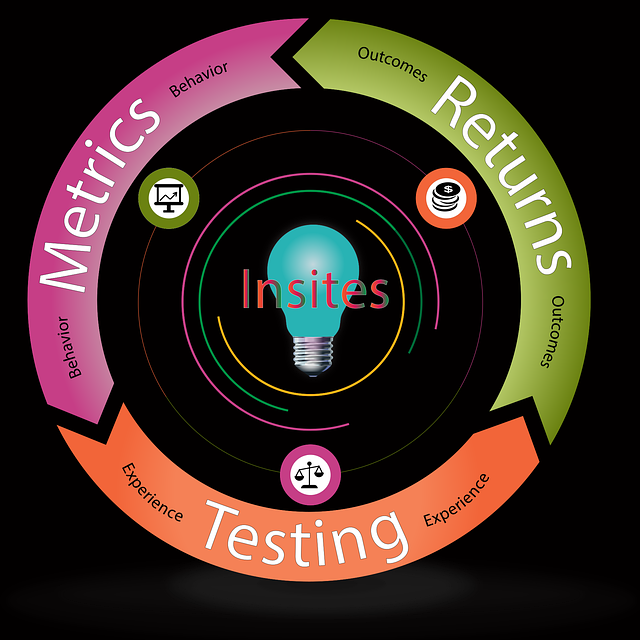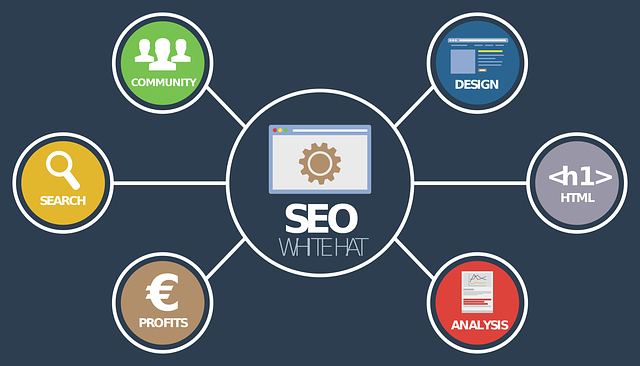In today's digital era, Digital Marketing is crucial for businesses aiming to thrive. It involves adapting to a dynamic landscape by leveraging SEO, social media engagement, and data-driven strategies. Understanding target audiences through detailed buyer personas enables marketers to create tailored content that resonates across various platforms like social media, blogs, and podcasts. Social media platforms provide powerful tools for brand awareness and direct customer engagement. SEO boosts online visibility by aligning content with user search intent, while email marketing fosters personalized connections. Advanced analytics track campaign performance and inform strategy adjustments, ensuring success. Ethical considerations, including privacy and transparency, are vital for long-term Digital Marketing success and maintaining consumer trust in a crowded digital landscape.
In today’s digital era, professional Digital Marketing has become a game-changer for businesses worldwide. This article delves into the multifaceted landscape of Digital Marketing, guiding you through essential strategies to thrive online. From understanding the evolving digital terrain and defining your target audience to crafting compelling content and leveraging social media, we explore each critical aspect. Unlock visibility with SEO, build relationships through email marketing, and learn analytics for campaign success—all while navigating ethical considerations in this dynamic field.
Understanding the Digital Marketing Landscape

In today’s digital era, understanding the dynamic landscape of Digital Marketing is paramount for businesses aiming to thrive. It encompasses a diverse array of channels and strategies, from search engine optimization (SEO) that boosts online visibility to social media marketing, which fosters direct engagement with customers. Effective digital marketing leverages these tools not just to attract but also to retain and convert audiences into loyal brand advocates.
Navigating this landscape requires a strategic approach that aligns marketing efforts with target audience behaviors. With constant evolutions in technology and consumer preferences, staying informed about the latest trends is crucial. From mobile-first indexing to voice search optimization, keeping pace enables businesses to maximize their online reach and stay competitive in the ever-changing Digital Marketing realm.
Defining Your Target Audience Online

In the realm of digital marketing, understanding your target audience is a game-changer. It involves defining and segmenting potential customers who are actively present online, often through various social media platforms and digital channels. By identifying these audiences, businesses can tailor their strategies to resonate with specific groups, ensuring that marketing efforts are not just reaching but also engaging the right people. This process requires gathering and analyzing data on demographics, behaviors, preferences, and pain points of potential customers.
Digital Marketing professionals use tools like analytics software and customer relationship management (CRM) systems to track online interactions and gather insights. This allows for creating detailed buyer personas, which represent fictional characters that encapsulate the traits and characteristics of ideal customers. Such personas guide content creation, ad campaigns, and overall marketing strategies, ensuring every effort is targeted, effective, and likely to convert.
Crafting Engaging Content Strategies

In the realm of digital marketing, crafting engaging content strategies is paramount for capturing and retaining audiences in today’s competitive landscape. It involves a thoughtful blend of creativity, data analysis, and an understanding of target demographics to create value and foster meaningful connections. Effective content strategies not only entertain but also educate, inspire, and persuade consumers, driving them to take desired actions like making purchases or subscribing to services.
Professional digital marketers achieve this by staying abreast of the latest trends and using tools like search engine optimization (SEO) to enhance visibility. They leverage various platforms—social media, blogs, videos, podcasts—to distribute content that aligns with audience interests and preferences. By tailoring messages to specific segments, brands can build stronger relationships, increase brand loyalty, and ultimately achieve their marketing goals in a crowded digital space.
Leveraging Social Media for Brand Awareness

In today’s digital era, leveraging social media platforms is a powerful strategy for boosting brand awareness within the realm of digital marketing. With millions of active users across various networks, brands can create engaging content and connect directly with their target audience. Platforms like Instagram, Facebook, Twitter, and LinkedIn offer unique opportunities to showcase products or services, share valuable insights, and build a community around your brand. By utilizing hashtags, influencer partnerships, and targeted advertising, businesses can expand their reach exponentially.
Social media allows for two-way communication, enabling companies to gain valuable customer feedback and engage in meaningful conversations. Regularly interacting with followers fosters loyalty and strengthens the brand-consumer relationship. Furthermore, through analytics tools provided by these platforms, marketers can measure campaign effectiveness, track user behavior, and make data-driven decisions to refine their digital marketing strategies over time.
Search Engine Optimization (SEO): Unlocking Visibility

In the realm of digital marketing, Search Engine Optimization (SEO) stands as a cornerstone strategy to enhance online visibility and drive organic traffic. It involves a meticulous process of optimizing websites to rank higher on search engine results pages (SERPs), ensuring that businesses are easily discovered by potential customers. By understanding user intent behind searches, SEO professionals craft content and structure web pages that align with relevant keywords, thereby increasing the likelihood of appearing in top search results.
Effective SEO requires a deep-rooted approach that combines keyword research, high-quality content creation, technical optimization, and link building. Digital marketers employ various techniques to analyze competitor strategies, identify target audiences’ preferences, and adapt content accordingly. This ongoing process not only improves website visibility but also fosters trust and credibility among users, ultimately converting them into valuable customers within the competitive digital landscape.
Email Marketing: Building Relationships

Email marketing remains a powerful tool within the realm of digital marketing, enabling businesses to forge strong connections with their target audience. By personalizing and segmenting email campaigns, companies can foster meaningful relationships with customers and prospects alike. This strategy involves understanding individual preferences and behaviors, allowing for tailored content that resonates deeply with each subscriber. A well-crafted email sequence can educate, entertain, or offer valuable solutions, thus encouraging engagement and fostering brand loyalty.
Through regular communication, businesses establish themselves as trusted sources, providing value beyond mere transactions. By offering exclusive promotions, sharing industry insights, or delivering helpful tips, companies create a sense of community and exclusivity. This approach not only drives sales but also positions brands as authorities in their respective niches, solidifying their digital marketing strategy’s effectiveness over time.
Analytics and Measuring Campaign Success

In the realm of digital marketing, analytics play a pivotal role in understanding campaign performance and making data-driven decisions. By leveraging robust tracking tools and metrics, marketers can gain valuable insights into user behavior, engagement levels, and the overall effectiveness of their campaigns. This includes measuring key performance indicators (KPIs) such as click-through rates (CTRs), conversion rates, cost per acquisition (CPA), and return on investment (ROI). These metrics provide a clear picture of what’s working and what needs improvement, enabling marketers to optimize their strategies in real-time.
Effective digital marketing campaigns are characterized by their ability to adapt and evolve based on data-backed insights. Through continuous monitoring and analysis, professionals can identify trends, patterns, and opportunities that might otherwise go unnoticed. This not only enhances campaign success but also ensures that marketing efforts remain aligned with business goals, ultimately driving better results and a stronger online presence.
Ethical Considerations in Digital Marketing

In the realm of digital marketing, where reach and impact are unparalleled, ethical considerations are more vital than ever. As professionals navigate the intricate landscape of online promotion, it’s crucial to tread with integrity and responsibility. Honesty and transparency are cornerstones; misrepresenting products or services can erode consumer trust, a valuable commodity in the digital age.
Respect for user privacy is another key ethical factor. With vast amounts of data readily available, marketers must ensure informed consent and secure handling of personal information. Striking the right balance between personalized targeting and privacy protection not only complies with regulations but also fosters long-term brand loyalty. Ethical digital marketing practices build a strong foundation for sustainable business growth, ensuring a positive impact on both consumers and the industry at large.
